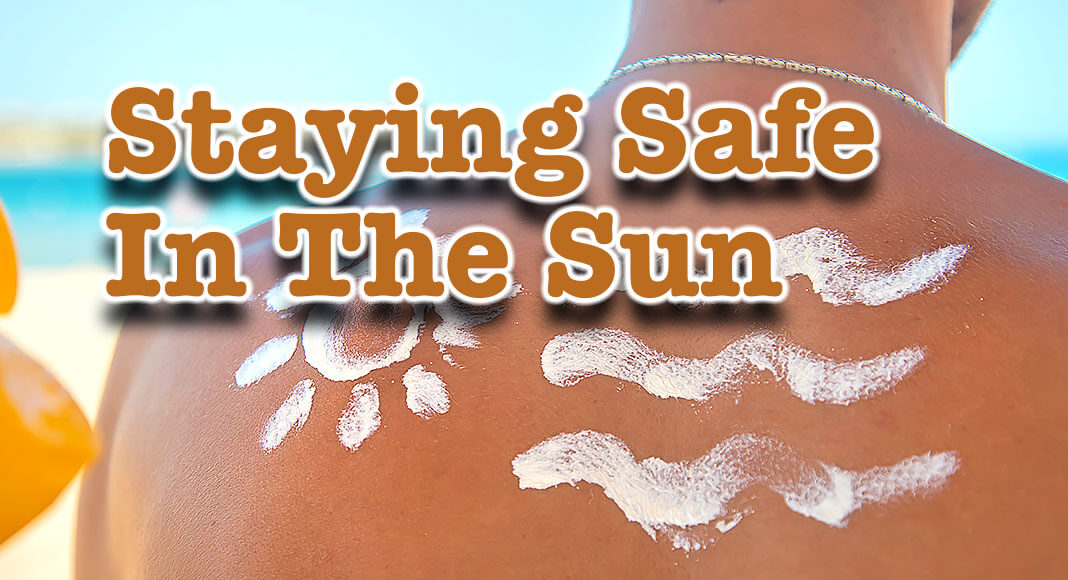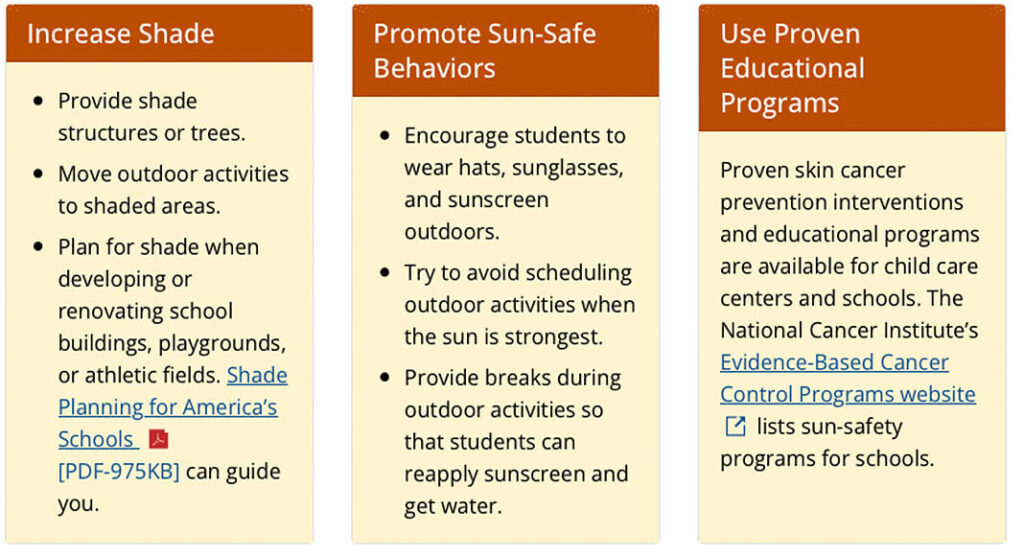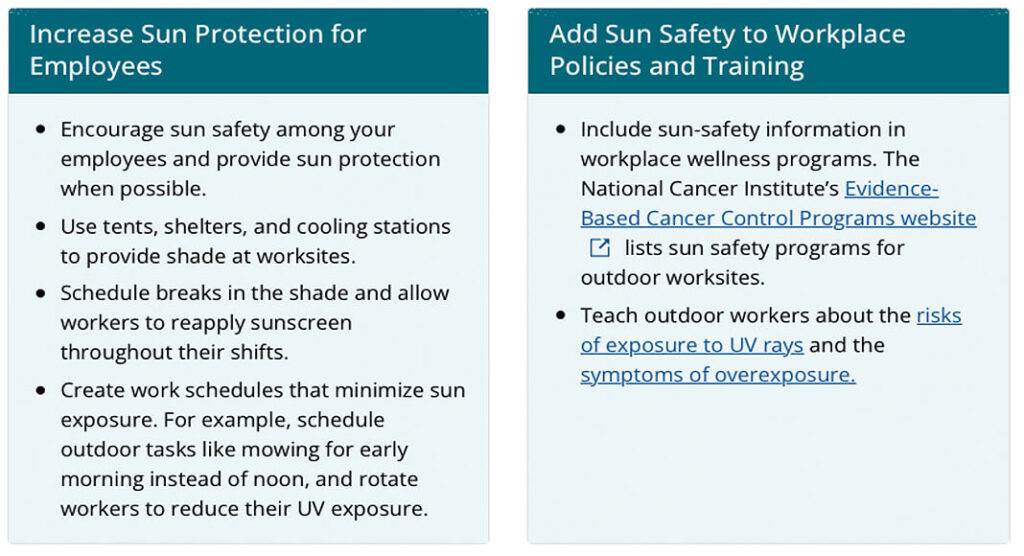
Mega Doctor News
Spending time outside is a great way to be physically active, reduce stress, and get vitamin D. You can work and play outside without raising your skin cancer risk by protecting your skin from the sun.
Most skin cancers are caused by too much exposure to ultraviolet (UV) light. UV rays are an invisible kind of radiation that comes from the sun, tanning beds, and sunlamps. UV rays can damage skin cells.
Protection from UV rays is important all year, not just during the summer. UV rays can reach you on cloudy and cool days, and they reflect off of surfaces like water, cement, sand, and snow. In the continental United States, UV rays tend to be strongest from 10 a.m. to 4 p.m. daylight saving time (9 a.m. to 3 p.m. standard time).
The UV Index forecasts the strength of UV rays each day. If the UV index is 3 or higher in your area, protect your skin from too much exposure to the sun.
How to Protect Your Skin from the Sun
Shade
You can reduce your risk of sun damage and skin cancer by staying in the shade under an umbrella, tree, or other shelter. Your best bet to protect your skin is to use sunscreen or wear protective clothing when you’re outside—even when you’re in the shade.
Clothing
When possible, wear long-sleeved shirts and long pants and skirts, which can provide protection from UV rays. If wearing this type of clothing isn’t practical, try to wear a T-shirt or a beach cover-up. Clothes made from tightly woven fabric offer the best protection. A wet T-shirt offers much less UV protection than a dry one, and darker colors may offer more protection than lighter colors. Some clothing is certified under international standards as offering UV protection.
Hat
For the most protection, wear a hat that has a brim all the way around that shades your face, ears, and the back of your neck. A tightly woven fabric, such as canvas, works best to protect your skin from UV rays. Avoid straw hats with holes that let sunlight through. A darker hat may offer more UV protection.
If you wear a baseball cap, you should also protect your ears and the back of your neck by wearing clothing that covers those areas, using sunscreen, or staying in the shade.
Sunglasses
Sunglasses protect your eyes from UV rays and reduce the risk of cataracts. They also protect the tender skin around your eyes from sun exposure.
Sunglasses that block both UVA and UVB rays offer the best protection. Most sunglasses sold in the United States, regardless of cost, meet this standard. Wrap-around sunglasses work best because they block UV rays from sneaking in from the side.
Sunscreen
Put on broad spectrum sunscreen that filters out both UVA and UVB rays and has an SPF of 15 or higher before you go outside. Don’t forget to put a thick layer on all exposed skin. Get help for hard-to-reach places like your back. And remember, sunscreen works best when combined with other options.
Sunscreen is not recommended for babies who are 6 months old or younger. The U.S. Food and Drug Administration recommends keeping infants out of the sun during midday and using protective clothing if they have to be in the sun.
SPF. Sunscreens are assigned a sun protection factor(SPF), which is a number that rates how well they filter out UV rays. Higher numbers indicate more protection. You should use a broad spectrum sunscreen with SPF of 15 or higher.
Reapplication. Sunscreen wears off. Put it on again if you stay out in the sun for more than 2 hours and after swimming, sweating, or toweling off.
Expiration date. Check the sunscreen’s expiration date. Sunscreen without an expiration date has a shelf life of no more than 3 years. Its shelf life is shorter if it has been exposed to high temperatures.
Sun Safety Tips for Schools

Recess and other outdoor activities during the day can put students at risk if their skin isn’t protected from too much exposure to the sun. Teachers and school administrators can take steps to protect students from getting skin cancer later in life.
Sun Safety Tips for Employers

The Occupational Safety and Health Act requires employers to minimize risk of harm to workers. Employers may be required to provide workers’ compensation to employees who get skin cancer because of sun exposure on the job.
Skin cancer can greatly reduce workers’ productivity. Every year, Americans lose more than $100 million in productivity because of restricted activity or absence from work due to skin cancer.
Providing sun protection for outdoor workers helps create a healthy and safe workplace. It can also increase productivity, which saves money. Some of the tips below protect outdoor workers from heat as well as sun exposure.
Information Source: CDC










